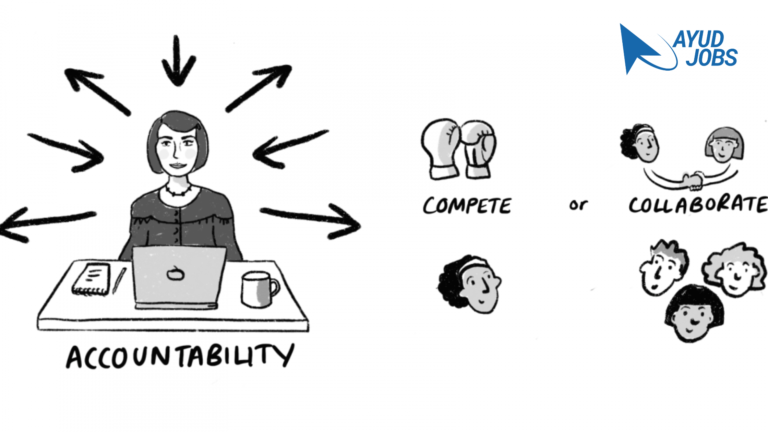Listen to Your Intuition: Trusting Your Gut Feeling for Better Decision-Making
Listen to Your Intuition: Trusting Your Gut Feeling for Better Decision-Making
Introduction
In a world dominated by logic, data, and rational thinking, it’s easy to overlook the subtle but powerful voice within us—our intuition. This inner voice, often referred to as a “gut feeling,” is more than just a fleeting thought. Listen to Your Intuition: Trusting Your Gut Feeling for Better Decision-Making. It’s a deeply ingrained instinct that can guide us in making decisions, both big and small. But what exactly is intuition, and why should we pay attention to it?
What Is Intuition?
Intuition is a form of knowing that doesn’t rely on conscious reasoning. It’s a quick, almost automatic response that often arises without our full awareness. You might have experienced it as a sudden feeling that something is right or wrong, even when you can’t logically explain why. This inner sense is shaped by our experiences, memories, and emotions, all working together beneath the surface of our conscious mind.
The Science Behind Intuition
While intuition might seem mystical, there’s scientific evidence supporting its validity. Research in neuroscience suggests that our brains are constantly processing vast amounts of information, much of which we aren’t consciously aware of. This unconscious processing allows us to make snap judgments and decisions based on patterns we’ve encountered before.
For example, if you’ve ever met someone new and immediately felt uneasy, your brain might be picking up on subtle cues—body language, tone of voice, or facial expressions—that remind you of a past negative experience. This is your intuition at work, signaling you to be cautious.
Why We Should Trust Our Gut
Quick Decision-Making
In fast-paced situations, there isn’t always time to weigh every option. Intuition allows us to make swift decisions based on our subconscious mind’s assessment of the situation. This can be particularly valuable in emergencies or high-pressure scenarios.
Access to Deep-Seated Knowledge
Our intuition draws from a lifetime of experiences and knowledge, much of which we’ve forgotten on a conscious level. By trusting our gut, we tap into this well of wisdom, which can lead to more informed decisions than purely logical analysis.
Improved Personal Relationships
Intuition plays a crucial role in social interactions. It helps us read between the lines, picking up on emotions and intentions that might not be explicitly stated. By listening to our gut, we can navigate relationships with greater empathy and understanding.
Common Misconceptions About Intuition
Despite its benefits, intuition is often misunderstood. Some people dismiss it as irrational or unreliable, preferring to stick with cold, hard facts. However, intuition isn’t about ignoring logic; it’s about complementing it. Our gut feelings shouldn’t replace rational thinking, but they can provide valuable insights that pure logic might miss.
Real-Life Example: A Story of Intuition
Consider the story of Sarah, a marketing manager at a growing tech company. Sarah had been working on a major campaign for months, meticulously planning every detail. However, as the launch date approached, she couldn’t shake the feeling that something was off. The numbers looked good, and her team was confident, but her gut told her to revisit the campaign’s messaging.
Trusting her intuition, Sarah decided to conduct one final focus group. To her surprise, the feedback revealed a significant issue: the campaign’s key message was being misinterpreted by the target audience. Thanks to her decision to listen to her gut, Sarah was able to make critical adjustments just in time, saving the company from a potential public relations disaster.
How to Strengthen Your Intuition
Practice Mindfulness
Being present in the moment helps you tune into your inner voice. Mindfulness practices, such as meditation or deep breathing, can quiet the noise of everyday life, making it easier to hear your intuition.
Reflect on Past Experiences
Take time to think about decisions you’ve made in the past, especially those guided by intuition. What were the outcomes? Reflecting on these experiences can help you recognize patterns and build confidence in your gut feelings.
Listen to Your Body
Our bodies often react physically to our intuition. Pay attention to how you feel when faced with a decision—do you notice tension, unease, or a sense of calm? These physical sensations can be powerful indicators of what your intuition is trying to tell you.
Give Yourself Space
Sometimes, we need to step back from a situation to let our intuition come through. If you’re feeling overwhelmed, take a break, go for a walk, or sleep on it. This mental space can help your subconscious process information and present you with a clearer sense of direction.
Balancing Intuition with Logic
While intuition is a valuable tool, it’s important to balance it with logical analysis. For significant decisions, consider gathering data, seeking advice, and weighing the pros and cons. Use your intuition as a guide, but don’t let it be the sole factor in your decision-making process.
For instance, if you’re considering a career change, your gut might tell you it’s the right move, but it’s still wise to research the new field, assess the job market, and consider your financial situation. By combining intuition with logic, you can make well-rounded decisions that feel right both emotionally and rationally.
The Role of Intuition in Creativity
Intuition also plays a significant role in creativity. Artists, writers, and innovators often rely on their gut feelings to guide their work. When you’re in a creative flow, you’re tapping into your intuition, allowing ideas to surface without overthinking. This spontaneous creativity can lead to groundbreaking work that logic alone might not have produced.
Conclusion
Listening to your intuition is about trusting yourself. It’s about acknowledging that your experiences, emotions, and subconscious mind all contribute to the decisions you make. By tuning into your gut feelings, you can navigate life with greater confidence, make better choices, and foster more meaningful relationships.
Remember, intuition isn’t infallible, but when used wisely, it can be a powerful ally in your decision-making process. So the next time you face a choice, big or small, take a moment to listen to your gut—you might be surprised by what it has to say. Listen to Your Intuition: Trusting Your Gut Feeling for Better Decision-Making.
Real-World Application
Try applying this concept in your daily life. Start with small decisions—what to wear, what to eat, or which route to take to work. Pay attention to how your gut feelings guide you. As you build trust in your intuition with these smaller choices, you’ll find it easier to rely on it when making more significant decisions.
In time, listening to your intuition can become a natural part of your decision-making process, leading to a more fulfilling and authentic life.
#TrustYourGut #IntuitionMatters #GutFeeling #Mindfulness #DecisionMaking #InnerWisdom #Creativity #MindfulLiving #SelfAwareness #SubconsciousMind #ayud #ayudjobs #askayud #MultiLanguageSupport #ResumeBuilder #gotestit #ayudian #ayudblog
How to Use Ayud Jobs: A Comprehensive Guide
Join our what’s app channel for timely updates







